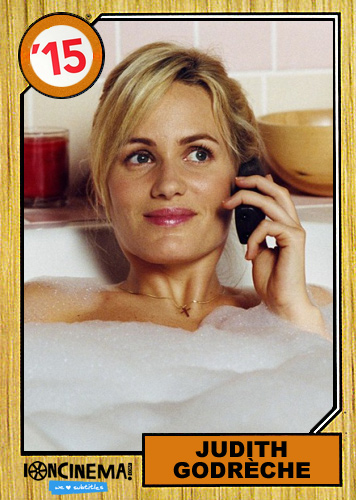
Judith Godrèche: Transparent (TV show). 20,000 Days on Earth (Nick Cave documentary). The Difficulty of Being by Jean Cocteau, which I read for the third time but in English this time, which made me feel as if I had never read it before
Lavallee: In Patrick Brice’s The Overnight you take on the role of Charlotte, what commonalities did you find between the character and yourself in terms of motherhood, parenthood, but more importantly, relationshiphood?
Godrèche: I would say that she is very open minded, which I am too in a general way.. She is a solution-seeker in terms of relationship, which I am too. She loves French wine and California. She never resigned.
Lavallee: A familiar face in French auteur cinema for two decades now, I was first wondering how did you come to include professional choices in the English language, making the move to the U.S now with Park Chan-Wook’s Stoker. I was wondering what your thoughts were on the differences (pros/cons) between American indie film productions and those from back home?
Godrèche: I worked with directors such as Park and Patrick Brice, who both have a real passion for French movies, but I don’t think it is linked…they are two very different directors and have a very intimate way to direct their movies. Stoker was a much bigger budget and crew but the approach is pretty much the same: those are directors who are making movies because they NEED to. It is a way of living their life. It is essential. It is what makes them feel alive aware and inspired.
I think that there isn’t really a difference between a French, Korean or American directors. The only difference I guess is when the movie feels more like a commercial gesture than an artistic one. On the movies that I worked on in America, the directors had total freedom and their movie belonged to them artistically. I guess that’s why sometimes American directors can envy in French directors – they always have the final cut. I did two films with Olivier Assayas and I feel that he could be working here and be completely ‘at home.’ This is what I love about cinema: it creates its own frontiers. And those are invisible.